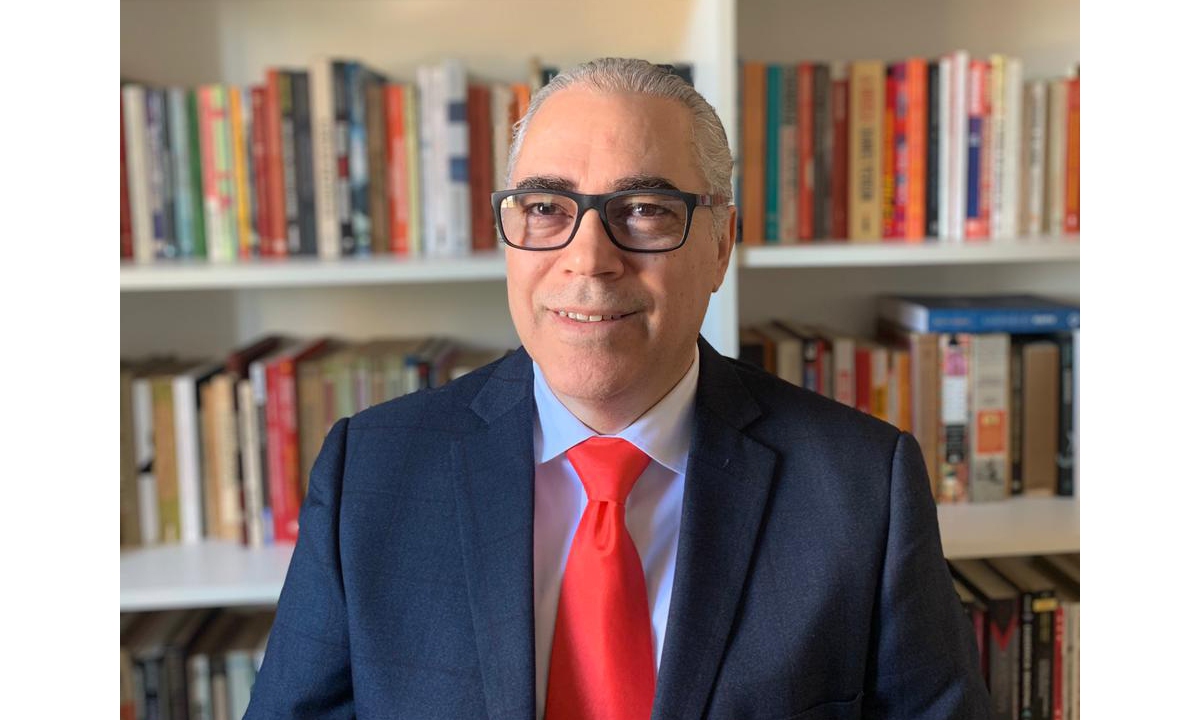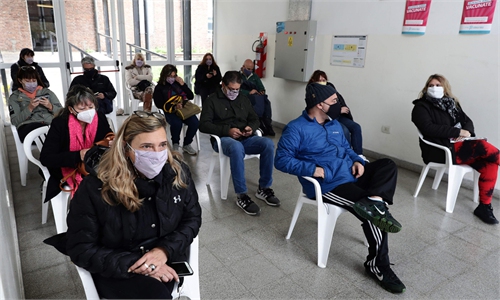
Marcos Cordeiro Pires. Photo: Courtesy of Marcos Cordeiro Pires
Editor's Note:The ongoing COVID-19 pandemic has brought the concept of "a community with a shared future for mankind" to the attention and recognition of many countries once again. After witnessing the poor performance of the US during the crisis, many countries have realized that politicizing the pandemic, like what the US has done, would not bring them out of the quagmire. What do the South American countries, as represented by Brazil, expect from the US after the pandemic? How do South American countries evaluate the performance of the US? Global Times (GT) reporter Xu Yelu talked to Marcos Cordeiro Pires (Pires), a professor of political economics at Sao Paulo State University, Brazil over these issues.
GT: What do you think of the US' pursuit of political power during the pandemic?
Pires: When we seek to contrast the US' pursuit of political power versus China's concept of "a community with a shared future for mankind," it is necessary to consider the history of each nation to better situate this problem; because their stances impact international politics and global governance.
Since its founding, the US has consistently defended its exceptional status as the country that synthesized all the best wishes of humanity, based on Christianity, private property, and individualism. Since forming the concept of "Manifest Destiny," US elites thought it should export its values to the entire planet as a missionary vision. With its economic, political, and military rise since the end of the 19th century, and the aftermath of World War II, the country has sought to impose its values on the world, whether through political, military, or cultural means.
In contrast, China, since the Ming Dynasty (1368-1644), has adopted a self-centered stance. The traditional Chinese values do not have a missionary character, even because the country does not have an official and proselytizing religion, such as Christianity, Judaism, or Islam. The political model of the empire, which considered the emperor's power over "All Under Heaven," refused the imposition of its model to other countries. On the contrary, it thought that its model, which seems itself as perfect, could be imitated by other countries if they sought to reach China's level of civilization. The system of tributary states did not imply the military imposition of the Chinese model. In the 20th century, neither did the People's Republic of China, from 1949 on, seek to "export" its political and economic model, as the former Soviet Union had done.
Considering the difference between the founding principles of their nations, it is difficult for a country that considers its values superior to other countries, such as the US, to accept a condition other than that of hegemony, something different from a new and equitable relationship between the great powers as China supports.
GT: Do China's concept of "a community with a shared future for mankind" and its performance during the pandemic have any lessons that can be applied to Brazil?
Pires: Brazil is in a part of the world where the US influence has always been powerful. Just remember that the "Monroe Doctrine" was created in 1823. It postulates "an America for Americans," in which it refuses the influence of extra-regional powers in Latin America. The political, ideological, financial and cultural weight of the US is a crucial conditioning element for government and society. When we think about Brazil's performance in the fight against the COVID-19 pandemic, we can see that the country repeats the same pattern of other Western and Christian countries, characterized by a strong sense of individualism. According to data compiled from the pandemic by the Worldmeters website, among the 50 countries with the most deaths per million inhabitants, only Lebanon, Israel and Tunisia do not profess the Christian faith. There is a considerable concentration of European, North American, Latin American, and Caribbean countries. In contrast, East Asian countries such as China, Vietnam, Japan, Laos.
If we were to look only at these data, we would say that Brazil has a lot to learn from the experience of China, a country with 1.4 billion inhabitants that has an average of three deaths per million. While in Brazil, with a population of seven times smaller, the rate is already over 2,000 per million. There is a flagrant difference between the actions of governments and the population. In China, very serious social distancing has occurred. Just remember that Wuhan was 76 days in complete lockdown. There has also been large-scale testing and strict monitoring of cases using state-of-the-art artificial intelligence technology. The response of the population was very positive, fully respecting the guidelines formulated by the government.
Despite the rapid dissemination of the coronavirus in Brazil, President Jair Bolsonaro has consistently minimized the pandemic and has been against social distancing policies and against coordinating actions with states and municipalities. In this aspect, instead of adopting the best international practices, such as China's, Bolsonaro preferred to copy the irresponsible posture of the former president of the US, Donald Trump.
GT: How do Brazilian people see China's performance during this epidemic?
Pires: After the first setbacks after discovering COVID-19 in January 2020, China sought to inform all countries about the severity of the disease, leading the WHO to declare a global pandemic situation. Moreover, after March, it started to expedite the supply of medical materials and equipment that helped countries to face the pandemic, including Brazil. It is worth mentioning the publication in Portuguese of the manual of "Prevention and Control of COVID-19," written by Dr. Zhang Wenhong, the first to address the characteristics of the disease and indicate the therapies studied in China. Subsequently, when it developed the vaccines from Sinovac and Sinopharm laboratories, China has guaranteed the supply to developing countries as no other major player on the international scene has done. What is more, it declared that Chinese vaccines would be public goods.
In the case of Brazil, the CoronaVac vaccine, which was tested in partnership with the Butantan Institute, is the main immunizer, contributing 70 percent of all doses already applied. Regarding how Brazil has seen China's contribution, it must be said that there was a negative perception propagated by the Bolsonaro government and its followers, which have repeated the lies spread by Trump and the international right-wing. Fortunately, relations with China are not restricted to the federal government, as the National Congress and most of the governors value the relationship with Beijing and are grateful for the partnership helping the country fight COVID-19.
GT: In your opinion, what do countries from South America, which the US sees as its backyard, expect from the US after witnessing what has happened during the pandemic?
Pires: As I said, the US' influence is very significant in Latin America as a whole. It is necessary to differentiate between the stances and speeches of Trump and Joe Biden. The former played a deplorable role in minimizing and politicizing COVID-19, in addition to attacking the measures to contain the virus and spreading ineffective drugs to treat the disease. In this respect, it was a terrible example for Brazil, whose president is not ashamed to be a Trump follower. Biden's arrival in power in January 2021 was seen as a relief, as he began to prioritize science in the fight against the disease.
Nevertheless, his attitude toward other countries did not stop reflecting "America First" logic. It's worth noting that the US government prohibited vaccine exports until its population was completely immunized. In mid-May, this posture began to change when it announced that it would donate 60 million doses of AstraZeneca vaccine. But we have to wait and see.
GT: Some Brazilian people tend to advocate learning everything from the West. Do you think this is the right strategic direction for Brazil's development? What does the pandemic reflect about "relying solely on the US" strategy?
Pires: It is important to note that Trump's influence has been disastrous. Many of the deaths that have occurred since March 2020 can be attributed to this. But not even the series of bad examples spread by the US government can undermine the significant influence exerted by Washington in Brazil. To reflect on this phenomenon, it is necessary to recall the concept of hegemony created by the Italian Marxist Antonio Gramsci that domination is not exercised only by the imposition of force but by creating a consent in which the dominated accept their condition. In this aspect, the construction of a superstructure is essential.
In Brazil's case, the American ideas, culture and political model helped to form many of the country's political and social structures and, in many cases, the very individualistic postures of Brazilians. It is no wonder that Brazil and the US have the worst rates of infection and death.



